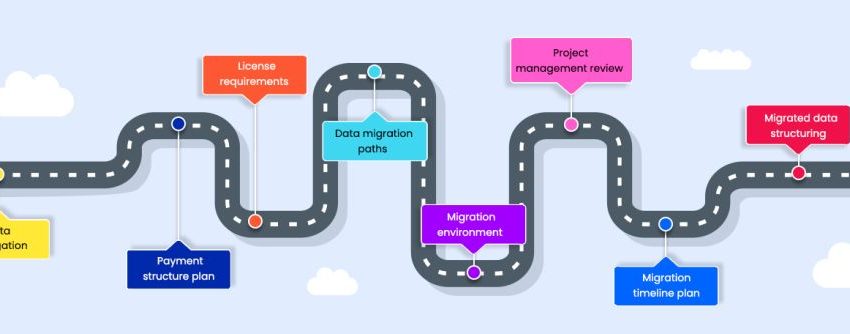How to Secure Data in the Cloud: Best Practices
As more and more businesses move their operations to the cloud, ensuring the security of sensitive data has become a top priority. With the increasing number of cyber threats and data breaches, it has never been more important to implement strong security measures to protect your valuable information in the cloud. In this article, we will discuss the best practices for securing data in the cloud and how you can ensure the safety of your business data.
1. Use Strong Encryption
One of the most important steps you can take to secure your data in the cloud is to use strong encryption. Encryption is the process of encoding data so that only authorized parties can access it. By encrypting your data before storing it in the cloud, you can ensure that even if someone gains unauthorized access to your data, they will not be able to read or use it.
Make sure to use encryption protocols such as SSL/TLS for data in transit and AES or RSA for data at rest. Additionally, consider using end-to-end encryption to further protect your data from unauthorized access.
2. Implement Access Control Measures
Access control measures are essential for securing data in the cloud. By implementing access control policies, you can ensure that only authorized users can access your data. This can include measures such as multi-factor authentication, role-based access control, and user permissions.
Regularly review and update access control policies to ensure that only those who need access to the data can access it. Limit access to sensitive data to only those employees who require it for their job functions.
3. Regularly Monitor and Audit Systems
Regular monitoring and auditing of your cloud systems are crucial for detecting and preventing security breaches. By monitoring system logs, you can identify any suspicious activity and take action to address it before it becomes a larger issue. Implement automated monitoring tools that can alert you to any potential security threats in real-time.
Regularly conduct security audits to identify any vulnerabilities in your cloud infrastructure and applications. Address any issues that are identified promptly to prevent data breaches.
4. Backup Your Data Regularly
Backing up your data regularly is essential for securing your data in the cloud. By maintaining regular backups of your data, you can ensure that you can recover your information in the event of a data breach or loss. Consider using a cloud backup service that encrypts your data and stores it securely off-site.
Regularly test your backup and recovery processes to ensure that you can quickly and effectively restore your data in the event of a disaster. Develop a comprehensive backup strategy that includes both full and incremental backups to ensure the safety of your data.
5. Train Employees on Security Best Practices
Employees are often the weakest link in the security chain, so it is essential to train them on security best practices. Provide regular training and education on how to identify and prevent security threats, such as phishing attacks and social engineering scams. Encourage employees to create strong passwords and to use best practices for protecting sensitive data.
Regularly remind employees of the importance of security and the role they play in protecting company data. Conduct regular security awareness training to keep employees informed about the latest security threats and best practices.
Conclusion
Securing data in the cloud is essential for protecting your business from cyber threats and data breaches. By following these best practices, you can ensure the safety of your valuable information and protect your business from potential security risks. Implement strong encryption, access control measures, monitoring systems, regular backups, and employee training to create a secure cloud environment for your data.
Remember, the security of your data is only as strong as the measures you put in place to protect it. By implementing these best practices, you can create a robust security framework that will keep your data safe in the cloud.


